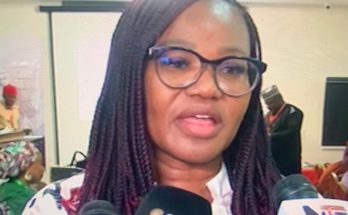The Chairman, House Committee on Renewable Energy and member representing Ogbaru Federal Constituency of Anambra state in the House of Representatives, Hon. Afam Victor Ogene, has said Nigeria has made significant strides in recent years in charting a new path that would ultimately lead to energy security.
Speaking Thursday in Abuja, at a workshop organised by the Renewable Energy Association of Nigeria (REAN), on the theme: “aligning sector strategies with net zero commitments”, Ogene, who was the Special Guest of Honour, however, said despite the successes recorded, the energy sector still faces significant challenges.
He said: “As the Chairman of the House of Representatives Committee on Renewable Energy, I am delighted to acknowledge the progress made by REAN in promoting renewable energy in Nigeria, as the future that has the potential to guarantee energy security in the nation.
“According to the United Kingdom Nigeria Infrastructure Advisory Facility (UKNiAF), the Nigeria Energy Transition Plan (ETP), launched in 2021 with support from COP26, outlines a pathway for Nigeria to achieve net-zero emissions by 2060. The plan, endorsed by the government, presents a $23 billion opportunity for financiers and partners.
‘The ETP aims to reduce Nigeria’s dependence on fossil fuels, promote renewable energy, and commercialize gas until 2030, followed by a gradual phase-out of fossil fuels. The plan estimates a reduction of up to 45% in greenhouse gas emissions by 2030 and up to 90% by 2050; improving air quality and creating significant economic opportunities and job creation across various sectors, potentially generating five million new jobs by 2030.
“UKNiAF said the full transition by 2060 is estimated to require an investment of US$1.9 trillion, including initiatives to support developing sectors like electric mobility, green hydrogen, and capacity building for new markets. However, the ETP faces challenges in three main areas: funding, infrastructure, and skills development. Nigeria’s energy transition requires policy reforms, addressing infrastructure issues like poor power systems, and investments in education and training for new technologies.
“If Nigeria must make any significant strides in its development plans, the nation must strive to achieve energy security. Energy security, loosely defined as the continuous availability of energy in varied forms, in sufficient quantities, and at reasonable prices.
“Nigeria’s commitment to achieving net-zero emissions by 2060 is commendable, but we must align our sector strategies to achieve this goal. The National Assembly is committed to supporting the renewable energy sector through legislation and oversight, as earlier referenced. We have passed bills and resolutions aimed at promoting renewable energy development and reducing our carbon footprint.
“The National Assembly is committed to supporting the renewable energy sector through legislation and oversight. This we must do to ensure that we move forward in our commitment to the net zero emissions journey as a nation.
“I urge REAN to continue its excellent work in advocating for policies and programmes that support the growth of the renewable energy sector. Let us work together to create a sustainable energy future for Nigeria.”
Speaking earlier, the President of REAN, Mr Ayo Ademilua, said the workshop will provide stakeholders with the opportunity to interact and brainstorm on the challenges facing the sector and what needs to be done to reposition the energy sector.
“The workshop is geared towards tracking how far we are going regarding our commitment to Nigeria Energy Transition Programme (NETP). Last year, REAN committed to keep track of NETP to see how far Nigeria is going. So, this event today is to measure the tracks across different key sectors to see how far we have gone concerning the things we are planning to do.
“As a country, with regards to energy transition, we are moving forward, but a bit slowly. I believe there is room for improvement regarding our speed. There is a will power on the part of government, but we need to move faster.
“Funding is a big challenge, especially with regards to climate change issues. We also need a paradigm shift because energy transition is not just a government commitment, but requires the involvement of stakeholders,” he said.
Also speaking, the Managing Director/CEO, Rural Electrification Agency (REA), Abba Abubakar Aliyu, who was represented by the Acting Director of REA, Ngozi Chimdi Ejiogu, said that bridging the gap between sectors, taking cognizance Nigeria’s National Determined Contributions (NDCs) and the Energy Transition Plan (ETP) towards achieving the net zero commitment in 2060 requires a multi-pronged approach.




